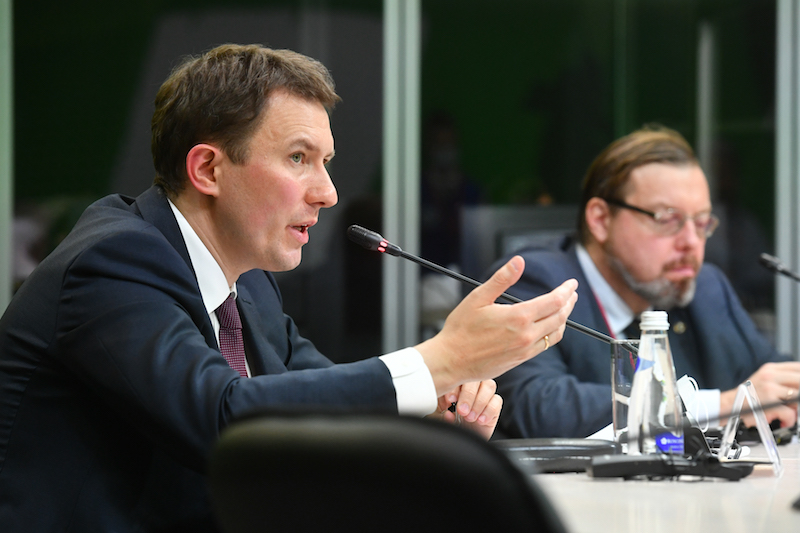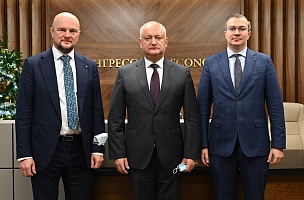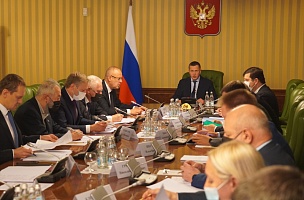KEY CONCLUSIONS
Decarbonization is just as critical for the chemical industry as it is for others
“More than 1,500 industrial companies have officially set themselves the target of achieving net zero emissions by 2040–2045. What’s more, these companies have tripled in number over the past 18 months. <...> Three main strategies are being employed to achieve decarbonization. If one were to generalize, the first amounts to reducing demand for energy resources. This is, essentially, all activity related to energy efficiency, and all aspects to do with the circular economy initiative. The second big area is related to stopping emissions and all steps and initiatives aimed at achieving decarbonization, reducing losses, reducing leakage, and developing technology which will help minimize emissions. And the third big area involves companies replacing raw materials and fuel for a lower-carbon alternative in their immediate operations,” Maxim Ufaev, Partner, McKinsey & Company.
“Let’s not forget that the chemical industry, like any other being presented and discussed at Russian Energy Week, is facing a great many challenges. One such challenge is undoubtedly the climate agenda, and petrochemical companies are having to dedicate more time and resources to sustainable development projects. This in turn is creating certain stimuli and certain challenges for the industry. At the same time, the chemical industry and chemical products possess certain unique functional characteristics, and play a key role in fulfilling a number of objectives, including in terms of environmental protection through reducing the consumption of resources and reducing carbon footprints. All of this would be impossible without the chemical industry,” Denis Deryushkin, Deputy General Director – Head of Analytical Center, Russian Energy Agency of the Ministry of Energy of the Russian Federation.
“Clearly, the petrochemical industry is creating high added value. What’s more, it is not an economic‑rent industry, and therefore, is an exclusively technology-based one, which creates serious value,” Anton Rubtsov, Director of Oil Refining and Gas Complex Department, Ministry of Energy of the Russian Federation.
PROBLEMS
New standards and rules being put in place as part of the decarbonization agenda are placing a regulatory and financial burden on businesses
“One challenge we are faced with is securing growth, but in such a way that does not contradict the decarbonization agenda. We need to reduce emissions and secure growth in parallel,” Darya Borisova, Managing Director for Development and Innovations, SIBUR.
--
“It is crucial to think about how to support an industry which could be affected by an element related to its regular operations. What’s more, the calculations we have done are very approximate. These calculations factored in the European Union’s stated intention to launch a pilot scheme in 2026 which will encompass the iron and steel sector, aluminium industry, fertilizer industry, gas chemistry industry, electric power, and cement production. <...> The additional burden on industrial companies in Russia could be in the region of USD 17 billion in 2035. <...> In the past 18 months, the number of statutory rules related to the ESG agenda has risen by 35% – mainly in the European Union,” Maxim Ufaev, Partner, McKinsey & Company.
SOLUTIONS
Increasing investment in developing and leveraging new forms of collaboration
“We must not lose out on this market. We must not create a situation whereby our hands are tied. It would be unfair, and ignore the entire chain that is objectively responsible for this hydrocarbon footprint,” Anton Rubtsov, Director of Oil Refining and Gas Complex Department, Ministry of Energy of the Russian Federation.
“In order to put ourselves in a position where, in 15 years, we no longer need to think about replacing imports of foreign-made technologies in order to process СО2 for example, or to use biofeedstock in the chemical industry (these are technologies which are at the early stages of development), we can invest in the early stages of development ourselves in cooperation with the scientific and tech community and with the support of the state,” Darya Borisova, Managing Director for Development and Innovations, SIBUR.
“The climate transition will ultimately lead to a reduction in overall demand for traditional products made by refineries, such as diesel fuel and petrol. Given this, refineries may – and probably will – move to the petrochemical segment. <...> We may have to think about ways of collaborating on developing technology which will enable the petrochemical sector to exist in a painless and climate‑transition compliant manner. This could involve refining and the traditional petrochemical sector in efforts to achieve decarbonization,” Anton Maximov, Director, Topchieva Institute of Petrochemical Synthesis of the Russian Academy of Sciences.
“Unless the state and industry work together in a coordinated manner, we will definitely be unable to achieve any real results. However, it is likely that the initiatives and incentives which we have already put in place will soon enable us to boast of low-carbon non-commodity exports. We remain hopeful that at some point in time, we will be able to begin exporting low-carbon technology,” Denis Deryushkin, Deputy General Director – Head of Analytical Center, Russian Energy Agency of the Ministry of Energy of the Russian Federation.
For more information, visit the Roscongress Foundation’s Information and Analytical System at roscongress.org/en.






